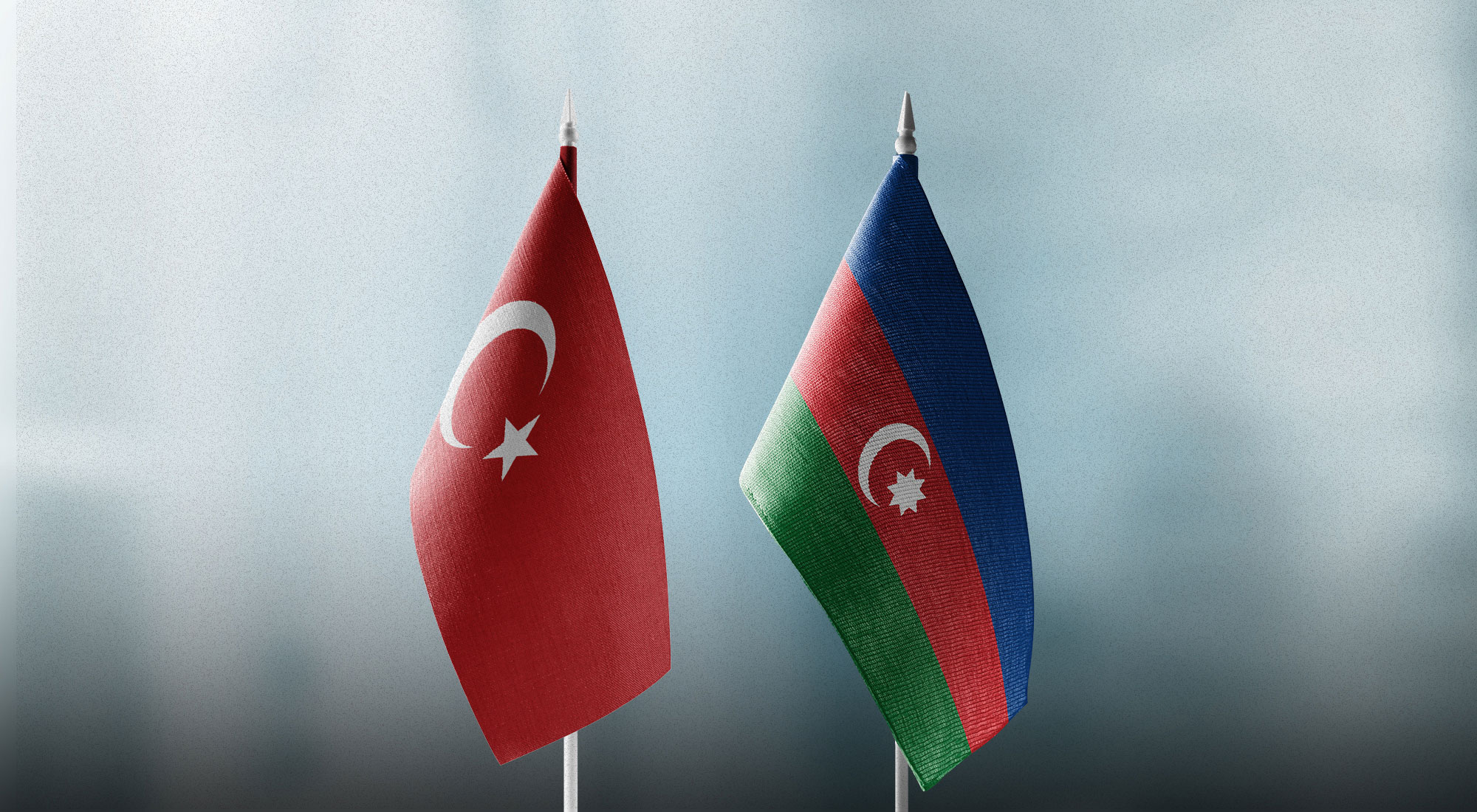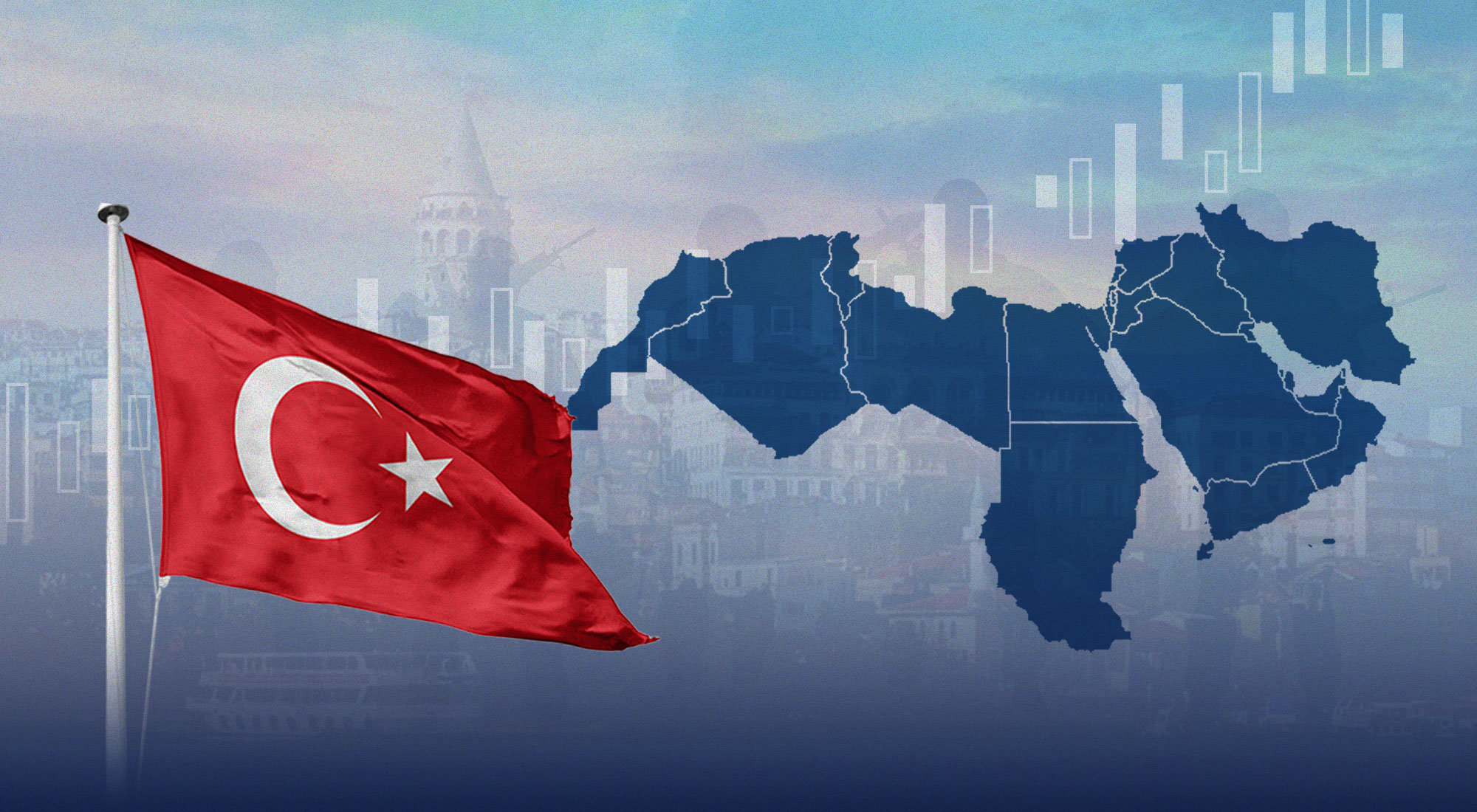When analysts discuss the Türkiye-Azerbaijan relations, the ideological rhetoric always prevails. Not only the ordinary people, but both presidents of two countries as well as many officials often use the “one nation, two states” slogan. What then lies at the root of this relationship? Is the relationship based purely on emotions, or are there other aspects at the forefront?
It is difficult to have an unambiguous answer for these questions. Turkish-Azerbaijani relations are of particular importance for Türkiye in terms of its South Caucasus and Central Asia-related policies and as part of the country’s security and energy policy. Meanwhile, the same relations are of high importance for Azerbaijan in terms of consolidation of its independence, support for its territorial integrity, and assistance for integration into the international system, particularly as part of its security and energy strategy. Indeed, there are also different directions available for both sides.
Regarding the ideological, rhetorical dimension of the bilateral relationship, common ethnic, religious, historical, and cultural values make it understandable. The people of these two states have been living within these territories for a long phase of history (former states in the current territories of Türkiye have been able to rule in Azerbaijan at various stages of history and vice versa). There is a certain cycle (even conflicting) of separation, which is the subject of much criticism in terms of the current communities.
The interests of Türkiye related to the South Caucasus and Azerbaijan
Countries centered in Baku (Azerbaijan), Yerevan (Armenia), and Tbilisi (Georgia) have never been ambitious players in the global processes at any stage of history. Particularly, the claims of Russia in the region on one hand and the lack of regional and global conditions to prevent these claims during the formation of the modern international relations system on the other hand (notably, the periods after WWI and WWII) were not conducive for the South Caucasus republics to continue to exist as independent states. Therefore, Armenia, Azerbaijan, and Georgia gained their positions in the modern international system only after the collapse of the Soviet Union (USSR). This meant that the South Caucasus turned to the main areas of regional and global power struggles following the end of the “Cold War”.
The end of the “Cold War” was the beginning of the stage of uncertainties in foreign policy for Türkiye, like other members of NATO. Türkiye had difficulties in many directions, as well as in its relations with the countries of the South Caucasus to decide which course to follow exactly. In the new period, certain nuances were noteworthy concerning the interests of Türkiye in the South Caucasus:
- To apply the “near circle” doctrine, although it was not officially announced immediately in the aftermath of the Cold War;
- To restrict the dangers and threats that may arise from regional actors such as Armenia, Russia, Iran, and even China;
- To establish good neighborly relations, strategic partnerships, and regional alliances (economic, political, military) when regional and global conditions are suitable;
- To create alternatives for their own needs by reaching natural resources in the region, but also to generate revenues by assisting access to these resources in international markets through Türkiye; to establish alternative routes for the countries in the region and to ensure their dependence on Türkiye;
- To have a reliable route for access to Central Asia due to its energy reserves and strategic importance, as well as historical, ethnic, and religious ties;
- To have an additional factor that can be used as a bargaining factor in the relations with other great powers struggling for the region.
In this context, the place and the role that Azerbaijan can play in terms of Türkiye’s foreign policy are of particular importance. Because, along with ethnic, religious, historical, cultural and other ties between the two countries, Türkiye also has a special place in the foreign policy of Azerbaijan. Taking a short glance at Azerbaijan’s overall foreign policy concept in the aftermath of the Soviet Union’s collapse, the significance of Türkiye becomes obvious. Although Azerbaijan’s foreign policy course was relatively balanced during the government of Ayaz Mutallibov (1991 – March 1992) and was somewhat more inclined toward Russia, officially Baku still attached great importance to the relations with Türkiye.
During his presidency, Ebulfez Elchibey (June 1992 – June 1993) demonstrated an anti-Russian, but rather pro-Western and pro-Türkiye foreign policy course. Although Haydar Aliyev applied a more balanced foreign policy course, Türkiye preserved its special place in his foreign policy. Azerbaijan has continued the balanced course, including “special relations” with Türkiye during the presidency of Ilham Aliyev (2003 – present), who came to power after Haydar Aliyev. Thus, this mutual importance provided a potential for both countries to develop their bilateral relations. Against the odds, Azerbaijan-Türkiye relations witnessed rapid growth following the diplomatic tension sparked by the 2008-2009 “Protocol Crisis” with Armenia. The 2010 signing of the Agreement on Strategic Partnership and Mutual Support and the establishment of the High-Level Strategic Cooperation Council signaled a new era in bilateral relations.
The primary historical stages of Azerbaijan-Türkiye relations
There are five primary historical stages of Azerbaijan-Türkiye relations:
- Common history;
- The Safavids-Ottomans period;
- 1918-1920, the period of the Azerbaijan Democratic Republic;
- Soviet period;
- 1991-… period when Azerbaijan regained its independence.
The first important point in terms of political relations between Azerbaijan and Türkiye was that the founders of these two states as representatives of the same nations lived together for many years. This point constituted the basis of the often-used slogan “one nation, two states”. A part of the history of the two countries is studied as a part of their own histories (sometimes common history) separately. However, notably during the Ottoman and Safavid periods, there was a serious gap between the two communities. Conflict and wars have occurred, not at the level of nations, but at the state level. Relations were established between the Ottoman Empire and the Khanates, which had emerged after the collapse of the Safavid states. The political relations between Azerbaijan and Türkiye in the early 20th century were promoted to a higher level.
At the beginning of the 20th century, the Ottoman Empire turned to the Republic of Türkiye and the Azerbaijan Democratic Republic (1918-1920) was established in the north of Azerbaijan. However, due to the shorter period of existence of the Azerbaijan Democratic Republic, there was no opportunity to establish serious relations between the two countries. Azerbaijani Turks in Anatolia and Türkiye’s Turks in Azerbaijan had respectively important steps in the ideological sense and in terms of support to ensure the territorial integrity and consolidation of sovereignty in Azerbaijan.
The emotional and historical roots of this partnership run deep: Azerbaijanis supported the Ottoman front during the Battle of Çanakkale; the Azerbaijan Democratic Republic sought global recognition via Istanbul; the Caucasian Islamic Army played a decisive role in the liberation of Baku; and Azerbaijan offered material aid to the Turkish War of Independence. These acts helped forge a strong sense of kinship in the early 20th century, overshadowing the rivalries of the Safavid-Ottoman era.[1] Even after Bolshevik Russia occupied Azerbaijan, the political relations lasted for a short time and Azerbaijan opened an Embassy in Ankara. Since the independent foreign policy options of Azerbaijan were restricted by Moscow, Azerbaijan-Türkiye relations were subsequently suspended, whereas cultural ties remained during the Soviet period until 1930 and after the death of Stalin.
After Azerbaijan gained its independence in 1991, official relations were re-established between the two societies. Azerbaijan had received more support from Türkiye during its struggle for independence. Türkiye was the first country to recognize the independence of Azerbaijan and to give it the most support while facing the Russia- and Iran-supported Armenian attacks.[2] After Azerbaijan gained independence, relations between the two countries for the last 35 years have experienced considerable progress and interesting periods.
The initial period of bilateral relations has been dominated by emotions and ideology, quite naturally. During the struggle for independence, there were subject-sensitive nationalistic communities in both Azerbaijan and Türkiye. The presidency of Abulfaz Elchibey can be attributed to this stage.[3] In the second period, individual relations between the leaders were at the forefront. Relations between former Azerbaijani President Haydar Aliyev and former Turkish President Süleyman Demirel are a pure example of that. Although this factor was criticized then, like now, it played a bridge role for the institutionalization of relations in the subsequent stage.[4] Although the previous governments laid down the foundations, more work was done in this period during the current President Ilham Aliyev in Azerbaijan and President Erdoğan’s government of AKP in Türkiye.
In general, Azerbaijan-Türkiye relations have had a rising character between 1991 and 2016. Even in periods when there were serious problems, positive steps and statements were at the forefront and the challenges remained in the background. Both sides have signed different agreements covering a range of areas, as Ankara and Baku openly supported each other on all significant issues, realizing important regional projects such as the Baku-Tbilisi-Ceyhan and Baku-Tbilisi-Erzurum pipelines and the Baku-Tbilisi-Kars railway project.[5]
In this context, the 2008-2010 period is an exception. The initiatives for the normalization process between Türkiye and Armenia led to a “flag crisis” with Azerbaijan. There were certain mutual discontents when Turkish police threw Azerbaijani flags into the garbage that were brought to the Türkiye-Armenia football match in Bursa on 14 October 2009, and Turkish flags were drawn down in the Turkish memorial in Baku. However, the experts and politicians from both countries stated that the “flag crisis” does not represent the spirit of the bilateral relations and it is against the strategic perspective of the relations. Since 2010, both countries have made positive steps to return to the previous positive track in relations.
Strengthening the strategic character of bilateral relations
The foundations of today’s strategic alliance were laid even earlier, through a series of agreements—signed in 1992, 1994, and 1997—that emphasized friendship, cooperation, and aspirations for deeper strategic coordination. A turning point came with the then Turkish Prime Minister Recep Tayyip Erdoğan’s visit to Baku in May 2010, shortly after the “flags/protocols crisis”. His address to the Azerbaijani parliament marked a decisive step toward deepening the strategic character of bilateral ties.[6] The visit of former Turkish President Abdullah Gül to Azerbaijan on 16-17 August 2010 completed these changes. This visit was cemented with the signing of a “Strategic Partnership and Mutual Assistance Agreement” between Azerbaijan and Türkiye.[7]
The essence of military cooperation is regulated through Article 9 of the “Strategic Partnership and Mutual Assistance Treaty”, with 23 articles overall. Article 6 on “Military-political and security issues” and Articles 7 and 9 on “Military and military-technical cooperation” specifically articulate different aspects of military cooperation. In the preamble of the agreement, both sides committed that “two states shall provide mutual assistance in case of armed conflicts directed to the territorial integrity, sovereignty and independence of each other”; provision of national security; developments of cooperation in the military and military-technical areas, etc. Article 1 envisages the consultation in case of attack and threats; Article 2 envisages the mutual assistance to use the right of collective or individual self-defense recognized by Article 5 of the UN Charter; Article 7 envisages the necessary planning for connecting the power and administrative structures of the armed forces.[8]
During the 10th Turkic World Summit held on 15-16 September 2010, another important step was taken in the bilateral relations by signing the “Joint Declaration on Establishment of the Azerbaijan-Türkiye High-Level Strategic Cooperation Council.”[9] Afterwards, the bilateral relations were promoted through the meetings of this council. The real test of this relationship, however, came during the Second Karabakh War in 2020, when Azerbaijan reclaimed large swathes of its territory from the Armenian occupation. Until then, the Azerbaijan-Türkiye partnership had yielded primarily economic dividends. But during this conflict, Türkiye played a stabilizing role—dissuading external actors from intervening directly on Armenia’s behalf—and helped shift the regional military balance.[10]
From strategic partners to regional allies
The Azerbaijan-Türkiye nexus evolved from strategic cooperation to something approaching a formal alliance. The Second Karabakh War marked the first time that a factor external to Russia—the Azerbaijan-Türkiye partnership—demonstrated the capacity to decisively shape outcomes in the post-Soviet space.[11]
Still, two key concerns lingered:
- The war halted before Azerbaijan regained all its occupied territories.
- For the first time since 1993, Russian troops—under the guise of peacekeepers—entered Azerbaijani territory, albeit with Baku’s consent.
These developments raised alarm not only in Azerbaijan and Türkiye but across the region. Nevertheless, the strategic momentum in the Azerbaijan-Türkiye relationship helped define the next phase of events. During President Erdogan’s June 2021 visit to Azerbaijan, the two leaders signed the Shusha Declaration on Allied Relations. More than a symbolic gesture, the document marked a qualitative shift—from partnership to alliance—by reaffirming mutual support across political, military, and regional platforms. It explicitly referenced the doctrine of “one nation, two states” and pledged unwavering backing for each other’s sovereignty and territorial integrity.
Notably, the declaration reiterated the security guarantees first articulated in the 2010 Strategic Partnership Agreement—this time with a greater emphasis. It also institutionalized coordination via regular joint meetings of the two countries’ national security councils. For the first time, a bilateral document directly addressed the proposed Zangezur Corridor, recognizing its strategic importance for both countries and for broader regional cooperation.
This was an unprecedented moment. For the first time, Ankara and Baku spoke with one voice on regional matters beyond their bilateral agenda. The declaration affirmed their joint commitment to restoring economic and transport connectivity in the Caucasus, normalizing regional relations, and promoting long-term peace. It also gave fresh momentum to pan-Turkic cooperation. Many analysts argue that the strength granted by the Shusha Declaration enabled Azerbaijan’s decisive moves in 2021-2023—culminating in the September 2023 counter-terrorism operation that led to the withdrawal of Armenian armed groups and Russian peacekeepers from Azerbaijani territory. Azerbaijan ultimately restored full sovereignty over its entirety.
Conclusion
Although ideological rhetoric is often used while speaking on Türkiye and Azerbaijan, bilateral relations are of high importance for both countries. The period when emotions and personal relations were at the forefront of bilateral relations was left behind (though the importance of both factors is kept). Afterwards, the bilateral relationship was institutionalized and both sides developed high-level military and energy cooperation. The signing of the strategic partnership agreement in August 2010 and the establishment of the High-Level Strategic Cooperation Council are particularly important in this relationship. This was the highest form of cooperation in the foreign relations of both countries.
The alliance—once informal—was made official. Coordination now extends beyond bilateral affairs into wider regional strategy, including joint positions on peace in the South Caucasus, pan-Turkic integration, relations with Greece, and the crisis in Syria. For a country like Azerbaijan, which has traditionally pursued a balanced foreign policy, the deepening of relations with Türkiye is not merely about ethnic or cultural solidarity. The two nations often face threats from similar directions, confront shared risks, and align on strategic interests.[12]
Türkiye remains Azerbaijan’s most consistent, unconditional, and comprehensive supporter—across sovereignty issues, the Karabakh conflict, state-building efforts, and internal stability. Despite occasional divergences, such as their respective ties with Israel, the alignment of strategic priorities and existential concerns guarantees that this alliance will endure—and likely deepen. Today, the ideological language surrounding the relationship is not mere symbolism; it serves to reinforce the strategic core of the alliance.
[1] Telman Nüsretoğlu, “Yüz yıllık emanet: Kafkas İslam Ordusu,” TESAM III, Uluslararası Sosyal Bilimler Kongresi Bildirileri, s. 88-91.
[2] “Bilateral Relations,” the official website of the Ministry of the Foreign Affairs of the Republic of Azerbaijan, http://mfa.gov.az/images/stories/Ikiterefli%20munasibetler/Avropa/Turkiye.pdf.
[3] For more information on this subject, please refer to the source: Nazim Jafersoy, Azerbaijani Foreign Policy in Elchibey era (June 1992-June 1993), ASAM Publications, Ankara, 2001.
[4] For more information on this subject, please refer to the source: Araz Aslanli, Ilham Hasanov, Azerbaijan Foreign Policy in Haydar Aliyev era (1993-2003), Ankara, Platinum Publications, 2004.
[5] Svante E. Cornell, Mamuka Tsereteli and Vladimir Socor, “Geostrategic Implications of the Baku-Tbilisi-Ceyhan Pipeline,” http://www.silkroadstudies.org/new/inside/publications/BTC.pdf.
[6] “The Azerbaijani President and Turkish Prime Minister held a press conference,” http://www.president.az/articles/51
[7] “Azerbaijan and Turkey have signed documents,” http://www.president.az/articles/603 ; “We feel ourselves in Azerbaijan like at home,” the official website of the President of the Republic of Turkey http://www.tccb.gov.tr/haberler/170/76961/azerbaycanda-kendimizi-evimizde-hibediyoruz.html ;
[8] “Strategic Partnership and Mutual Assistance Treaty between the Republic of Azerbaijan and the Republic of Turkey,” http://www.e-qanun.az/framework/21158.
[9] “A declaration was signed between Azerbaijan and Turkey on the establishment of Council on strategic cooperation,” http://president.az/articles/721?locale=az.
[10] Yalçın Sarıkaya, “Bir Jeo Psikolojik Dügümün Çözümünün Analizi: İkinci Karabağ Savaşı Sonrasında Türk Dünyası,” Karabağ: Dünü, Bugünü, Yarını, 2021, p.255-280.
[11] Nazim Jafarov, Araz Aslanli, “Russia’s Policy During the 44-Day Karabakh War,” Insight Turkey 23 (4), p. 213-230.
[12] Javid Valiyev, “Turkey`s South Cauasus Policy after the 44 Day,” Caucasus Strategic Perspectives, 2021, Volume 2, Issue 1, p. 11-26.








